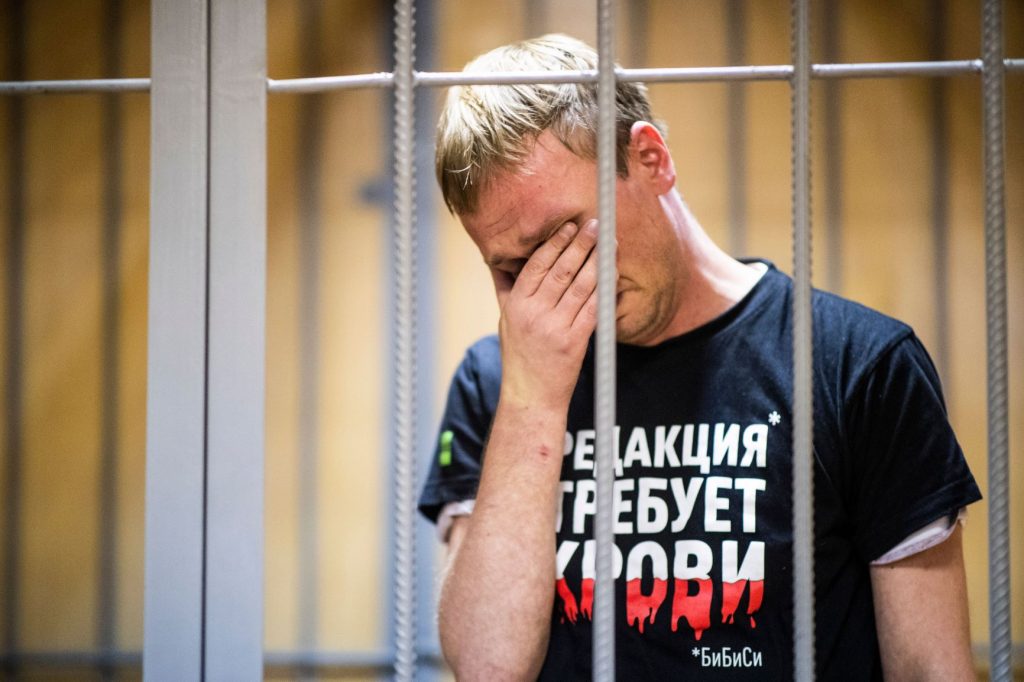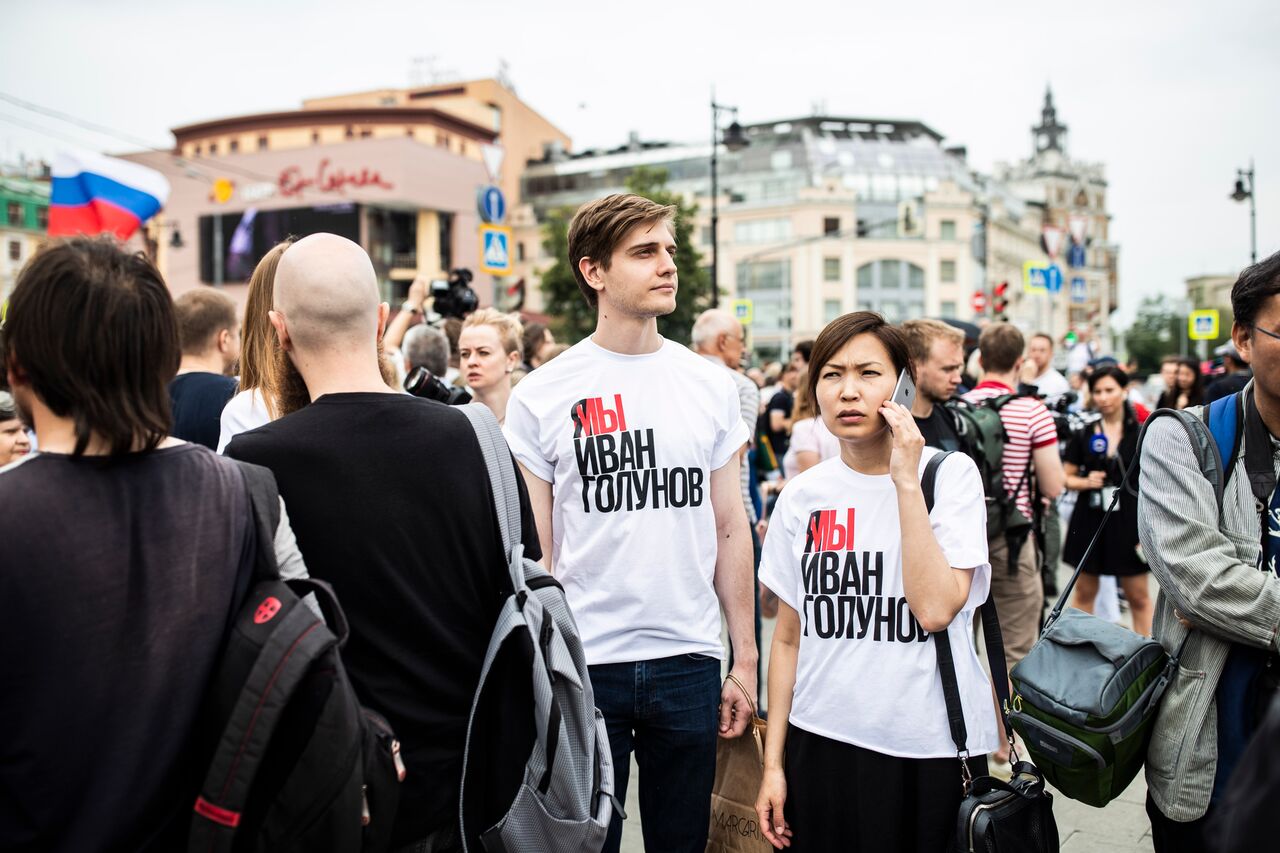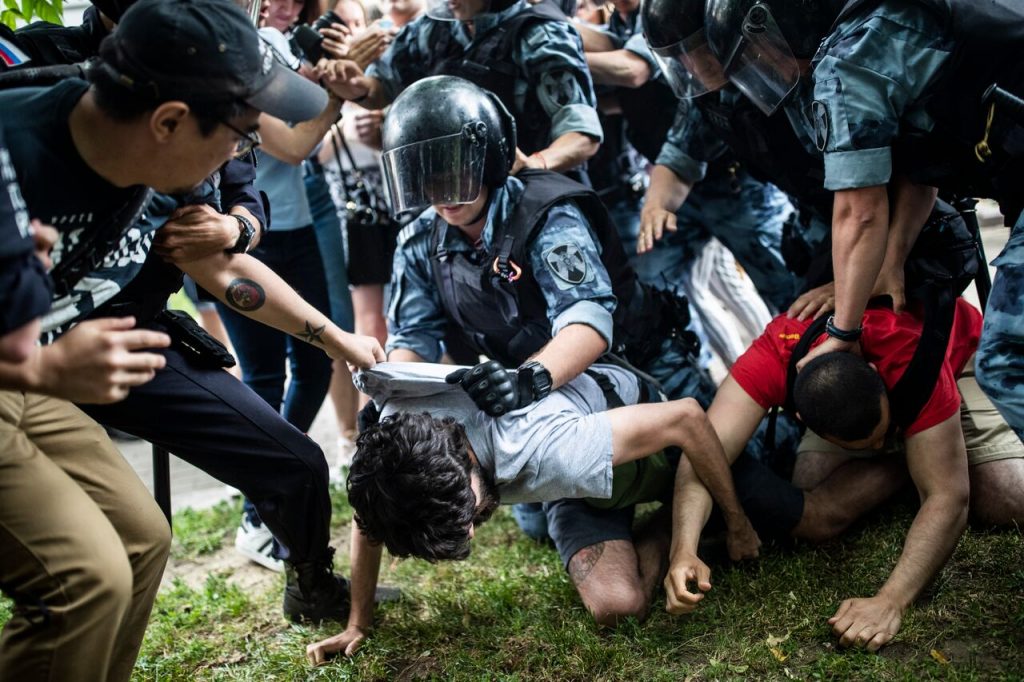
Ivan Golunov is freed but this is not the first sign of a thaw: the insider account of the resonant release
Meduza journalist Ivan Golunov was arrested last Friday and accused of drug dealing, but all charges were dropped Tuesday ahead of an unsanctioned protest in Moscow. It became clear that drugs had been planted on him by the police in apparent revenge for his investigative reporting.
After the arrest, everyone from independent journalists to employees of state-owned television channels and officials came out in support of Golunov. His name was mentioned more often on social media than President Vladimir Putin’s. Drug dealing prosecutions in Russia can drag on for years, but Golunov’s case was closed in five days and two deputy ministers at the Interior Ministry, the head of the Department for Narcotics Control and the head of the Moscow Police Department were all fired. Golunov’s release caused euphoria, but it all, predictably, ended in tears: the organizers of the protest fell out with each other and over 500 people were arrested at the demonstration Wednesday.
How Golunov was freed. The effort to save Golunov began Saturday, a few hours before his first court appearance. On one side were two deputy Moscow mayors, on the other, two liberal journalists: the chairman of the board of directors at Novaya Gazeta newspaper, Dmitry Muratov, and editor-in-chief of the radio station Ekho Moskvy, Aleksei Venediktov. Both Novaya Gazeta and Ekho Moskvy are critical of the regime, however, Venediktov is a frequent guest in the Kremlin, and his radio station is owned by Gazprom Media. Novaya Gazeta is often tied (Rus) to Sergei Chemezov, head of state conglomerate Rostec.
The Moscow head of the Interior Ministry was also present at the initial meeting. “For a long time, we asked questions and it became clear that the basis for the charges was terribly wobbly,” Muratov told The Bell. Eventually, it was decided that Golunov should be placed under house arrest: according to media outlet Proekt (Rus), this was agreed with Anton Vaino, the head of the Presidential Administration. Putin himself participated in the final decision to drop all charges, Muratov told The Bell. Everything was decided, but to release Golunov the authorities needed a legal pretext. It soon appeared in the form of DNA test results that showed Golunov’s DNA was not on the drugs ‘found’ in his apartment.

Evgeny Feldman for Meduza
An outpouring of support. According to Muratov, public outrage played a big role in Golunov’s release. In particular, a petition on Change.org signed by 200,000 people, and the prospect of almost 20,000 taking part in a protest in Moscow. Golunov was backed by hundreds of journalists who questioned officials about the arrest. The case was reported on national television channels (with the sanction of the Presidential Administration, according to Proekt). On Monday, three leading newspapers — RBC, Vedomosti and Kommersant — published identical front pages with the phrase “I am/We are Ivan Golunov”. Moscow became full of t-shirts, stickers and posters with this slogan. But solidarity wasn’t just limited to the journalist community: from the moment of Golunov’s arrest, people queued to take part in a picket in front of police headquarters in Moscow. Similar pickets also took place in other Russian cities.

A protest marred by arguments. The march in support of Golunov was scheduled for 12 June, which is a national holiday. And when Golunov was released the day before, protestors decided to make the march about police abuses and a demand to find those who ordered Golunov’s arrest. Before the protest, the organisers, most of whom were journalists, could not agree whether it was worth trying to get official approval. The Moscow mayor’s office refused to discuss the question on-the-record, and the organizers refused to engage in an off-the-record discussion. After Golunov’s release, Muratov of Novaya Gazeta, the management of Meduza, where Golunov works, and The Bell founder Elizaveta Osetinskaya published a joint statement (Rus) suggesting approval be sought for the march (in effect putting in doubt whether it would go ahead). This was met with anger on social media, and journalists were criticized for only caring about one of their own. In the end, both Osetinskaya and Meduza’s management attended.
A rough police response. Police officers began detaining people even before the march began, and peaceful protestors were dragged along the ground and, in some cases, beaten with rubber batons. In total, almost 550 people were detained: the majority charged with participating in an unauthorized rally and let go the same day. These people now face either a fine of $155 to $4,600 or up to 30 days in jail. One of the organizers was detained while on the phone with a deputy mayor to ask why the police were detaining people without placards in apparent violation of an agreement that they would not be touched. He wasn’t able to finish his conversation; he was hauled off to a police van.

Evgeny Feldman
Who actually planted the drugs on Golunov? Those behind the arrest are still unknown, but there are rumours. In his first interview after being freed, Golunov said (Rus) he had recently received threats. It is likely these were related to his work looking into the involvement of security service officials in Moscow’s funeral service business.
Why the world should care?
The Golunov case has made it clear that an agreement can be reached with those in power, particularly when what is happening is not in the Kremlin’s interests, and certainly not in the interests of the Moscow city government, which was the focus of many of Golunov’s investigations. The protest march showed that such an agreement is the exception and not a rule. It is far too early to speak of a “thaw”. The disagreements between Golunov’s supporters also show that civil society solidarity is always fragile.




